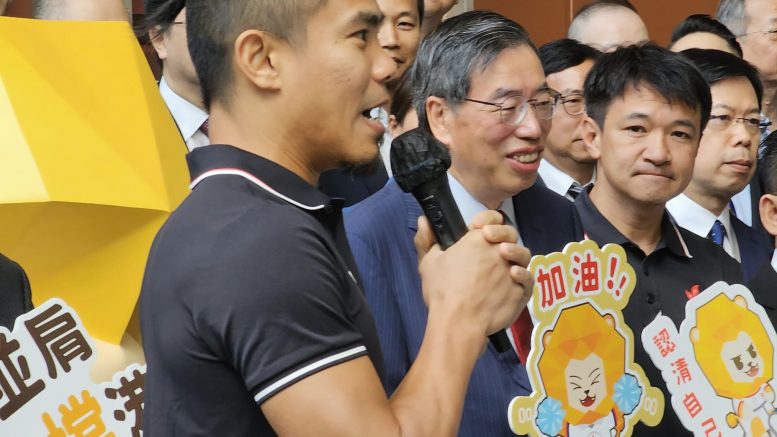By Chris Yeung —
Expectations were poles apart in Hong Kong and Beijing over the formation of a Legislative Council after the 2021 election was held following a revamp of the election rules by the central government in the aftermath of the 2019 social unrest.
With the total number of members increased from 70 to 90 and an “improved” election system installed, Beijing leaders held out high hopes the “all patriots” legislature would do a better job and collaborate with the Government better to improve governance.
A big chunk of the populace, however, either have low expectations or couldn’t care less about the new election game. Most voters, who had voted for the pan-democrats in previous elections, had shunned the election held in December 2021.
Around 1.3 million voters cast ballots, representing a 30.2 percent voter turnout, the lowest since 1997. It contrasted sharply with the 2019 district council election when more than 2.9 million people cast ballots for a historic 71 percent turnout rate.
Although the new legislature was set up in accordance with the law with its legality and legitimacy beyond question, the fact seven out of ten voters did not vote has raised serious questions about its representativeness.
That up to 70 percent of voters may hold the view that the Legco does not represent them has seriously undermined its authority and arguably legitimacy.
Adding more insult to injury, the new legislature has been marred by poor performance and laxity of most lawmakers since its inauguration, inflicting more wounds to its image and authority. Worse, it has caused embarrassment to the central authorities.
Drawing painful lessons from the city’s half-democracy and highly-autonomous rule since 1997, Beijing is adamant a communist-style election system and a hands-on approach in governing the city could safeguard national security and restore stability and prosperity in Hong Kong – in that order.
Never mind its duties and functions stipulated in the Basic Law, the new legislature no longer plays the role as it had been in reality. In a sense, it has become a subordinate to the executive authorities, whose primary function is to give greenlight to government policies and applications for fundings when required.
Against that background, it is hardly surprising – and came as expected indeed – that the problem of laxity in the legislature has become increasingly apparent.
Some lawmakers no longer cared about who said what, how they voted on motions, in the official records of Legco meetings.
Almost all voting was conducted without a registration of votes by each member because it was no longer deemed as an important record for members to show accountability when accountability doesn’t matter.
Increased laxity grew from bad to worse as some members did not care about taking part in meetings when bills and government fundings were table for a vote as revealed by the Chinese-language Ming Pao last week.
Based on video records of meetings, Ming Pao found two-thirds of the government bills were tabled for a vote, or 16 out of 24, since the new term began at meetings with less than half of members attending. The official quorum of Legco members stated in the Basic Law is “not less than one half”.
One meeting saw only 11 members attending, or 12 percent of total members.
Paul Tse Wai-chun, who chairs a Legco committee on rules and procedures, said the effectiveness of voting would not be affected when a meeting did not meet the official quorum if no members demanded registered voting. But he expressed fears that the relevant decisions may face the risk of legal challenges.
It is too early to tell whether those Legco decisions would be challenged in courts. The possibility is low. The legal cost and legal risk of judicial review against the authorities are now sky-high.
But to the “patriots” and the central authorities, the political fallout of the revelation of laxity of lawmakers in voting on bills, which is one of the major duties and functions, has been damaging and embarrassing.
Ming Pao, citing sources, said officials from the central government’s Liaison Office have called up some lawmakers to find out what happened.
It looks highly likely that the Liaison Office cadres fear about the legality of Legco decisions; they fret about the damages to the image of Legco constituted through an “improved” election system.
With substantive improvement in governance still lacking, the image of Legco with a sense of purpose, discipline and commitment is a modest demand, but proved to be too high for some of the lawmakers.
If some members no longer care about face, it is because they do not have to show accountability, attendance and performance to voters, thanks to the “improved” election system.
(This article first appeared on online media Green Bean)


Be the first to comment on "Election system breeds laxity in Legco"